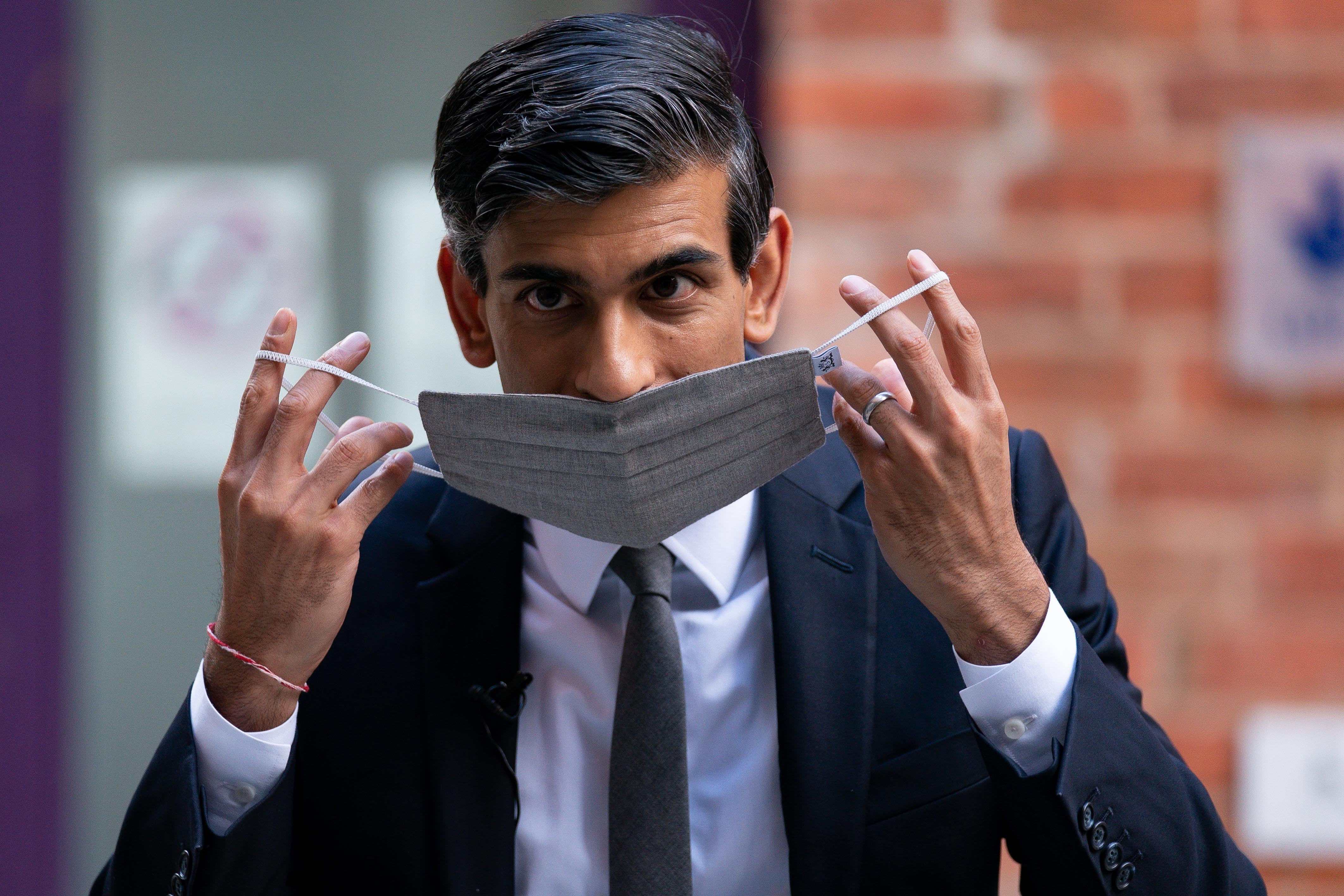The jobs market has improved but Rishi Sunak has no cause to be crowing
Payrolls are at pre-pandemic levels, but the recovery is patchy and freelancers are still struggling. Sunak can’t open the champagne just yet, writes James Moore


“Today’s statistics show that our plan for jobs is working,” declared chancellor Rishi Sunak, as labour market data showed a record number of vacancies in August and employee numbers back at pre-pandemic levels.
That statement was disingenuous, even from a government that has specialised in speaking with a forked tongue.
Yes the numbers were good. Those vacancies passed the 1 million mark. Payrolls climbed above 29.1 million.
But this was less a function of any government “plan” than it was of an economy that’s been in deep freeze, thanks to lockdown, being given a blast of energy courtesy of its rapid reopening.
Say what you like about Mr Sunak, but he certainly isn’t stupid. He will know that behind the figures and the spin there is a lot going on, and not all of it is good.
Consider the plight of freelancers and the self-employed. They were among the hardest hit by the pandemic as the work they relied on dried up. The support they were somewhat belatedly offered also proved decidedly uneven.
The Resolution Foundation think tank says it is aware of people who actually made more through grants from the government’s Self-Employed Income Support Scheme (SEISS) than they were taking home pre-pandemic. But the vagaries of the scheme mean that there were even more who received little or no support. That was just about excusable from the first iteration of the SEISS, given the speed at which it was put together and the complexities involved.
Far less excusable is the fact that it was scarcely changed to take account of the problems people pointed out. The think tank also notes that self-employment is still down by 700,000 since the start of the pandemic. Among that number will be many people who have since moved into full-time roles. But it is nonetheless correct to cite this as evidence that the labour market is still far from back to full health.
It puts Mr Sunak’s crowing into context. It could even be considered crass, especially when you consider how uneven the recovery in the jobs market has been.
Employee levels remain below pre-pandemic levels in London, Scotland and the southeast. The capital, obviously, is a global centre for travel, tourism, the arts and entertainment, which helps to explain some of its woes. Those sectors have been slow to recover, and the flip side of the 1 million or so vacancies Britain had on the books in August is that there were still more than 1 million people on furlough, being supported by the Job Retention Scheme.
It’s natural to look at those two numbers and to wonder whether the problem of labour shortages won’t magically solve itself when furlough ends at the end of the month.
The government clearly won’t do much to discourage this sort of thinking. It has already incorrectly suggested that the cruel £20 cut to universal credit could be handled by getting people a couple of hours’ work – ignoring the benefit’s taper, which means they’d need far more than that to make up the lost payments.
Another problem that I’ve mentioned before: you can’t immediately make an HGV driver out of a furloughed pilot, just as you can’t immediately ship furloughed travel industry workers in the southeast up north to fill the vacancies there. The labour market just doesn’t work that way.
Whether Mr Sunak will still be able to indulge in the same sort of crowing when these datasets are released next month, or the month after, is very much open to question.
There will almost certainly be a sharp rise in unemployment as furlough ends. But how sharp? That remains pure guesswork.
The government needs to “roll out and ramp up lifelong opportunities to retrain, including widening the scope of training provided through the apprenticeship levy” to ensure a successful, thought-out plan.
I’m quoting the Institute of Directors there. But plenty of others have said much the same thing. Mr Sunak and his colleagues have work to do, work that doesn’t involve meetings with special advisers and press officers about how to pat themselves on the back.



Join our commenting forum
Join thought-provoking conversations, follow other Independent readers and see their replies
0Comments